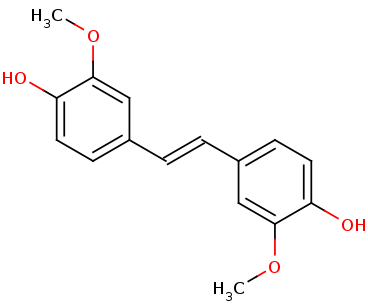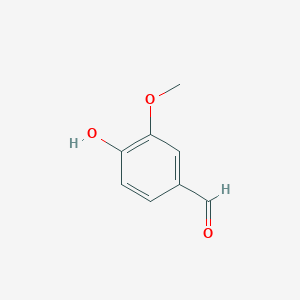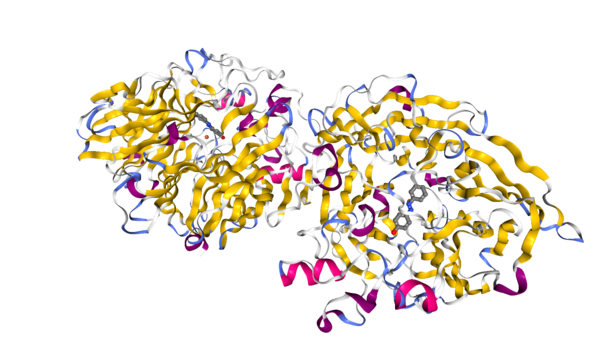We apologize for Proteopedia being slow to respond. For the past two years, a new implementation of Proteopedia has been being built. Soon, it will replace this 18-year old system. All existing content will be moved to the new system at a date that will be announced here.
Sandbox Reserved 1559
From Proteopedia
(Difference between revisions)
| Line 16: | Line 16: | ||
The flat surface of the B-sheet is pushing the amino acids up, making it possible for the <scene name='82/823083/6ojttriad/1'>catalytic triad</scene> Phe59, Tyr101, and Lys134 to create interactions with the <scene name='82/823083/Nsl_ligand/1'>ligand</scene>. | The flat surface of the B-sheet is pushing the amino acids up, making it possible for the <scene name='82/823083/6ojttriad/1'>catalytic triad</scene> Phe59, Tyr101, and Lys134 to create interactions with the <scene name='82/823083/Nsl_ligand/1'>ligand</scene>. | ||
| + | |||
| + | The tertiary structure creates a binding pocket of amino acids that are important to the active site. His282 provides pi-stacking, Phe305 provides Hydrophobic contacts, and Tyr101 provides Hydrogen bonding. The tertiary structure also allows the NSL ligand to interact using its 4-hydroxy with the catalytic triad. | ||
[[Image:6ojtsecondarystructure.png|600 px]] | [[Image:6ojtsecondarystructure.png|600 px]] | ||
Revision as of 20:50, 29 November 2019
| This Sandbox is Reserved from Aug 26 through Dec 12, 2019 for use in the course CHEM 351 Biochemistry taught by Bonnie_Hall at the Grand View University, Des Moines, USA. This reservation includes Sandbox Reserved 1556 through Sandbox Reserved 1575. |
To get started:
More help: Help:Editing |
Overview
| |||||||||||
References
- ↑ Hanson, R. M., Prilusky, J., Renjian, Z., Nakane, T. and Sussman, J. L. (2013), JSmol and the Next-Generation Web-Based Representation of 3D Molecular Structure as Applied to Proteopedia. Isr. J. Chem., 53:207-216. doi:http://dx.doi.org/10.1002/ijch.201300024
- ↑ Herraez A. Biomolecules in the computer: Jmol to the rescue. Biochem Mol Biol Educ. 2006 Jul;34(4):255-61. doi: 10.1002/bmb.2006.494034042644. PMID:21638687 doi:10.1002/bmb.2006.494034042644



